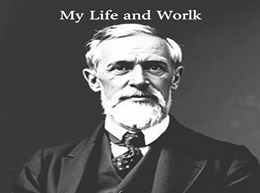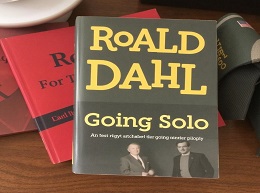Surprised by Joy

Delving into C.S. Lewis's "Surprised by Joy": A Journey of Faith
C.S. Lewis's memoir Surprised by Joy: The Shape of My Early Life is a profound narrative that chronicles his journey from atheism to Christianity. Known primarily for his works of fiction, such as The Chronicles of Narnia, and his Christian apologetic works like Mere Christianity, this autobiographical work provides a deeply personal insight into the experiences and reflections that shaped his faith. This review explores the key themes, literary techniques, and the impact of Surprised by Joy, offering a comprehensive analysis for readers seeking to understand the significance of Lewis's spiritual journey.
The Journey from Atheism to Christianity
Surprised by Joy is more than a recounting of events; it is an exploration of intellectual and emotional milestones that led Lewis to embrace Christianity. His journey is marked by various phases of belief, doubt, and eventual conviction.
Example: Early Atheism
Lewis describes his early life as steeped in rationalism and atheism. Raised in a nominally Christian environment, his faith waned following the death of his mother, leading him to adopt a skeptical and secular worldview. This phase is crucial as it sets the stage for his later transformation, highlighting the depth of his initial resistance to religious belief.
The Concept of Joy
Central to Lewis's memoir is the concept of "Joy," a profound, almost mystical longing that he experienced sporadically throughout his life. This Joy, which Lewis distinguishes from mere happiness, is portrayed as an intense, fleeting feeling that points beyond itself to something greater.
Example: The Experience of Joy
Lewis recounts several instances of Joy, such as his childhood fascination with Norse mythology and his first encounter with the beauty of nature. These moments, characterized by a sense of yearning and transcendence, acted as signposts in his journey. For instance, he describes an encounter with a toy garden that sparked a deep, inexplicable longing, which he later identified as a signpost pointing towards the divine.
Intellectual and Philosophical Influences
Lewis's path to faith was significantly influenced by his intellectual and philosophical pursuits. He was an avid reader and thinker, engaging deeply with various literary and philosophical works that shaped his worldview.
Example: The Influence of George MacDonald
One of the pivotal influences in Lewis's journey was the Scottish writer George MacDonald. Upon reading MacDonald's Phantastes, Lewis experienced a profound sense of Joy and wonder that challenged his atheistic convictions. He credits MacDonald's work with "baptizing his imagination," opening him up to the possibility of the divine.
Example: Conversations with J.R.R. Tolkien
Lewis's friendship with J.R.R. Tolkien also played a critical role in his conversion. Their discussions about myth, meaning, and truth helped Lewis see Christianity not just as a set of doctrines but as the true myth, the fulfillment of the deepest human longings expressed in all mythologies. This realization was instrumental in his eventual acceptance of Christian faith.
The Turning Point: Theism and Beyond
The turning point in Lewis's memoir is his reluctant acceptance of theism. This marked the beginning of a significant shift in his belief system, eventually leading to his embrace of Christianity.
Example: The Night on Addison's Walk
Lewis describes a pivotal night on Addison's Walk in Oxford, where he engaged in a deep conversation with Tolkien and another friend, Hugo Dyson. This conversation about myth and truth was a catalyst in Lewis's conversion to theism. He recounts how, during a subsequent bus ride to the zoo, he went from believing in a vague deity to a personal God, which he later identified as the Christian God.
Literary Style and Technique
Lewis's narrative style in Surprised by Joy is marked by clarity, introspection, and a touch of his characteristic wit. His writing combines narrative storytelling with philosophical reflection, making complex ideas accessible to readers.
Example: Vivid Descriptions
Lewis's descriptive passages bring his experiences to life. For instance, his portrayal of the beauty of the English countryside and the haunting allure of Northern landscapes are rendered with such vividness that readers can almost feel the Joy that these scenes evoked in him. His ability to convey the emotional and sensory details of these experiences helps readers connect with his journey on a personal level.
Example: Philosophical Reflections
Interspersed with these descriptions are Lewis's philosophical reflections on topics such as the nature of Joy, the limits of rationalism, and the search for meaning. His reflections are deeply personal yet universally resonant, inviting readers to ponder their own experiences of longing and fulfillment.
The Impact and Legacy of "Surprised by Joy"
Surprised by Joy has had a lasting impact on readers and scholars alike. Its honest and intellectual approach to the subject of faith continues to resonate with those exploring their own spiritual journeys.
Example: Influence on Christian Apologetics
Lewis's memoir has become a cornerstone of Christian apologetics, providing a compelling narrative that bridges reason and faith. His journey from atheism to Christianity, marked by rigorous intellectual exploration and personal experience, serves as an inspiration for those grappling with similar questions about belief and meaning.
Example: Personal Resonance
Many readers find personal resonance in Lewis's account of Joy and longing. His exploration of these universal experiences offers a framework for understanding their own spiritual and existential quests. This personal connection has helped Surprised by Joy remain a beloved and influential work in both literary and religious circles.
Surprised by Joy: The Shape of My Early Life by C.S. Lewis is a profound and engaging memoir that chronicles the author's journey from atheism to Christianity. Through vivid descriptions, philosophical reflections, and honest introspection, Lewis explores the nature of Joy, the intellectual and emotional milestones of his journey, and the influences that shaped his faith. His narrative is both deeply personal and universally resonant, offering readers insights into the human quest for meaning and the divine.
Lewis's ability to articulate the complexities of his spiritual journey with clarity and wit makes Surprised by Joy a timeless and inspiring read. Whether you are exploring your own faith, seeking intellectual stimulation, or simply appreciating a beautifully crafted memoir, Surprised by Joy offers a rich and rewarding experience that continues to inspire and provoke thought.













